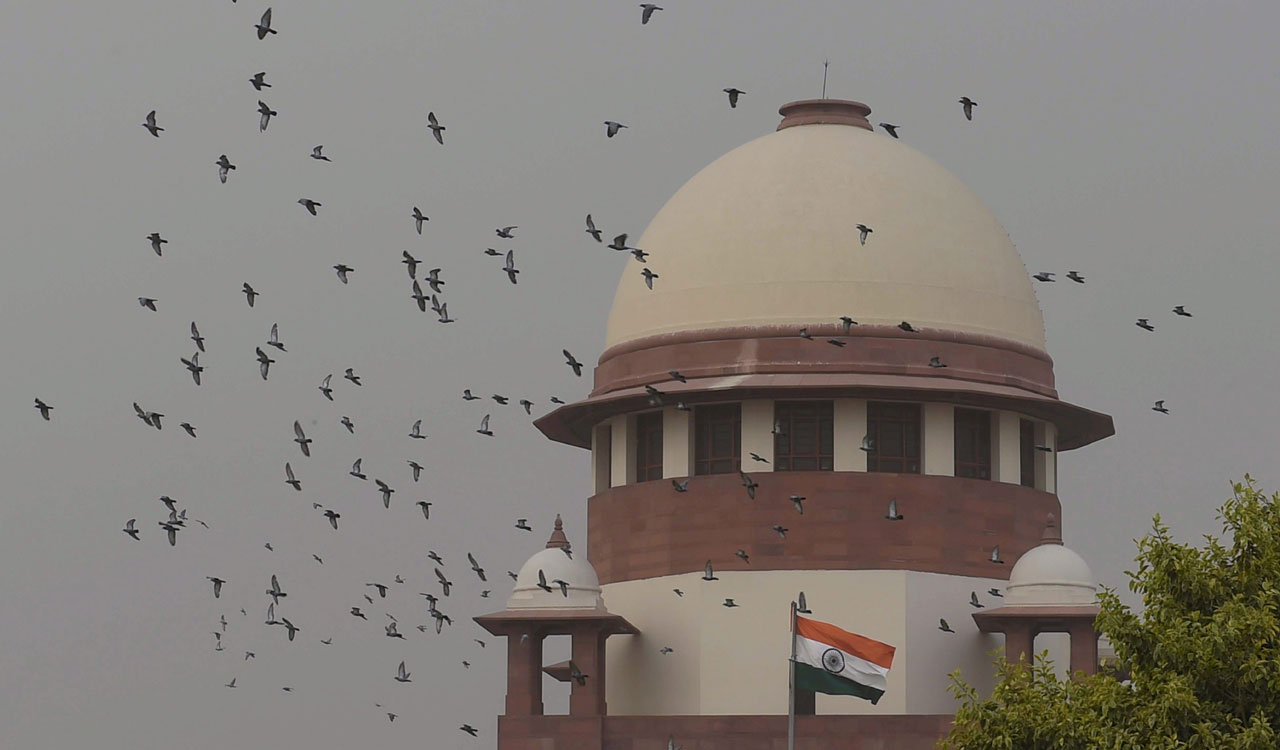Telangana High Court suspends single judge’s orders on Group-I results
The Telangana High Court has suspended a single judge’s order that had set aside Group-1 Mains results and directed revaluation. The Division Bench allowed the Telangana Public Service Commission to proceed with recruitments, subject to the final outcome of writ appeals.

By Legal Correspondent
Hyderabad: Chief Justice Aparesh Kumar Singh and Justice G.M. Mohiuddin of the Telangana High Court on Wednesday cleared the way for Telangana Group-1 recruitments, issuing interim orders suspending the single judge’s September 9 verdict that had set aside the Mains results and directed re-evaluation of answer sheets.
The Division Bench said that the Telangana Public Service Commission may proceed with the further process and appointment letters can be issued, though these would remain subject to the final outcome of the writ appeals.
The single judge had delivered a 222-page judgment earlier this month, setting aside the results over allegations ranging from errors in evaluation, double hall tickets, allocation of candidates to favourable centres, special centres for women, and bias against Telugu medium students, to selection of evaluators.
The order directed the Commission to re-evaluate answer sheets within eight months, failing which the entire Mains examination would stand cancelled.
A total of 15 writ appeals were filed against the order, 12 by the TGPSC and 3 by selected candidates. All were heard together on Wednesday.
Advocate General A. Sudarshan Reddy, Senior advocate S. Niranjan Reddy and Commission standing counsel P.S. Rajasekhar appeared for the Commission. Senior advocates S. Muralidhar, Desai Prakash Reddy and Advocate Vishnuvardhan Reddy and others argued on behalf of the selected candidates.
On the other side, senior advocates G. Vidyasagar, Rachna Reddy and Surender Rao represented the writ petitioners who had succeeded before the single judge.
The Advocate General argued that the single judge’s verdict was contradictory on one hand directing re-evaluation within eight months, while on the other hand directing cancellation of the entire examination if it was not done.
“Re-evaluation is nowhere in the TGPSC rules,” he pointed out, noting that only recount of marks is permissible within 15 days of results. He said the single judge had ignored the Commission’s version and given a judgment based on assumptions and predictions.
He stressed that moderation was followed exactly as per the Supreme Court’s ruling in Sanjay Singh v. UPPSC. Each answer sheet was assessed by two evaluators; where there was more than a 15% difference, the paper went to a third evaluator. He also defended the increase of centres from 45 to 46, explaining that a special centre for differently-abled candidates had to be set up, and that only women were allotted seats at Koti Women’s College due to lack of facilities for male candidates.
Senior advocate S. Niranjan Reddy submitted that there were no allegations of malpractice, paper leakage or mass copying. Minor issues, he argued, could not justify the cancellation of results.
On the other hand, senior advocates Vidyasagar, Rachna Reddy and Surender Rao insisted that evaluation was fundamentally flawed. They alleged that marks were assigned candidate-wise, not answer-wise, and that the system of a third evaluator was invented which was not prescribed in the rules.
“What occurred was not re-evaluation but a fresh evaluation,” argued Surender Rao, claiming that marks were awarded without marking the answer sheets.
Rachna Reddy alleged that several selected candidates were favoured with specific centres, while women candidates at Koti Women’s College saw disproportionate success. She maintained that serious irregularities had indeed tainted the process.
The bench asked both sides whether there was any evidence of mass copying, paper leakage or major fraud. It observed that issues like double hall tickets, additional centres, or allocation of women candidates fell within the Commission’s discretion.
“How can results be cancelled based on these small issues?” the bench asked.
After marathon arguments, the bench directed all parties to file synopsis highlighting key points and adjourned the matter to October 15.
Meanwhile, it suspended the single judge’s order, making it clear that appointment orders can be issued but will remain subject to the outcome of the writ appeals.
Related News
-
Telangana Human Rights Commission seeks report on advocate Swapna Kumari murder
5 mins ago -
Property owners, activists oppose Musi Riverfront project, allege secrecy
7 mins ago -
Hyderabad: Woman’s body kept in Kukatpally flat for four days, police probe on
10 mins ago -
Hyderabad: Rowdy sheeter Mohd Asad, seven associates arrested for attempt to murder
20 mins ago -
Arsenal cruises into FA Cup last 16 as heavyweights progress
20 mins ago -
Actor Trisha slams ‘distasteful’ remarks by BJP leader in Tamil Nadu
25 mins ago -
Three arrested in University of Hyderabad laptop theft case
25 mins ago -
Is Gen Z less intelligent? Experts link cognitive decline to screen time
33 mins ago




